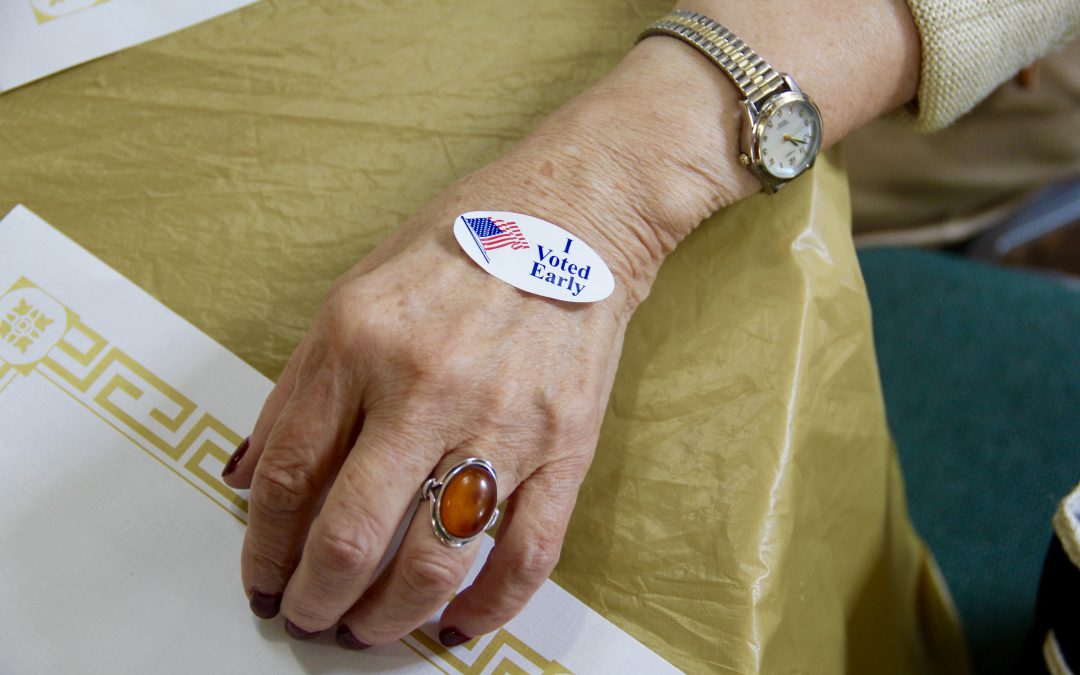WASHINGTON — A House Appropriations committee said Wednesday that not only did foreign actors attempt to interfere in the 2016 election, but that ahead of the 2020 election, vulnerabilities in many state election systems have not been fixed.
Their testimony reaffirmed the assessment of the Director of National Intelligence as part of the Worldwide Threat Assessment last month, which forecast that “our adversaries and strategic competitors probably already are looking to the 2020 U.S. elections as an opportunity to advance their interests.”
Alex Halderman, center, a professor of computer science at the University of Michigan, gives testimony to a House Appropriations subcommittee on vulnerabilities in the U.S. elections system. (Cameron Peters/MNS)
All three witnesses at the hearing supported the committee’s assessment and identified specific concerns about the state of United States elections infrastructure. They also, however, agreed that there is no evidence that a foreign power has affected the outcome of an American election.
Eric Rosenbach, the co-director of Harvard University’s Belfer Center for Science and International Affairs and former Pentagon chief of staff, said that Congress must prioritize domestic defenses, offensive cybersecurity capabilities and a posture of public deterrence if further attempts to interfere in elections are to be avoided.
Digital voting machines were identified as a particular vulnerability in some states’ systems, and direct-record electronic (DRE) voting machines were subject to particular scorn. DRE voting machines, which Rep. Matt Cartwright, D-Penn., described as a “clear and present danger” to election security, are currently in use in several states, in some cases without an accompanying paper trail.
Witnesses stressed that digital-only voting machines could potentially be manipulated undetected, and that paper ballots are preferable.
According to Alex Halderman, a professor of computer science at the University of Michigan and an expert on election security, a paper trail is an important step toward more secure elections, but it’s not enough by itself.
Halderman said a rigorous audit of election results is also necessary to assure a high degree of confidence in an election. However, eleven states do not have auditable elections.
He also advocated for federal policymaking to strengthen the election system. “I think it would be excellent if we had a uniform national policy that elections be rigorously audited,” Halderman said.
Steven Sandvoss, the executive director the Illinois State Board of Elections, said that Illinois voting machines are antiquated and in dire need of replacement. He estimated the cost of replacement at around $175 million, but noted that the Illinois budget would likely preclude replacing the machines.
The House Appropriations subcommittee on Financial Services and General Government hears testimony on vulnerabilities in the U.S. elections system Wednesday (Cameron Peters/MNS)
Rosenbach said that U.S. Cyber Command should also take on a larger, more proactive role in preventing election interference. States, he said, shouldn’t be left to deal with attacks on their own.
He added that the states should receive federal funding to combat the threat. “This is a nation-state actor,” Rosenbach said. “The states are not designed to have cybersecurity to defend against that threat.”
As the 2020 election approaches, the disparity in levels of election security between states presents another challenge. Halderman said that it may not matter which state is targeted by cyberattacks if that attack undermines confidence in the national outcome.
As such, he said, “until we bring up the most weakly protected states to an adequate level of security, the whole nation will be at risk.”



